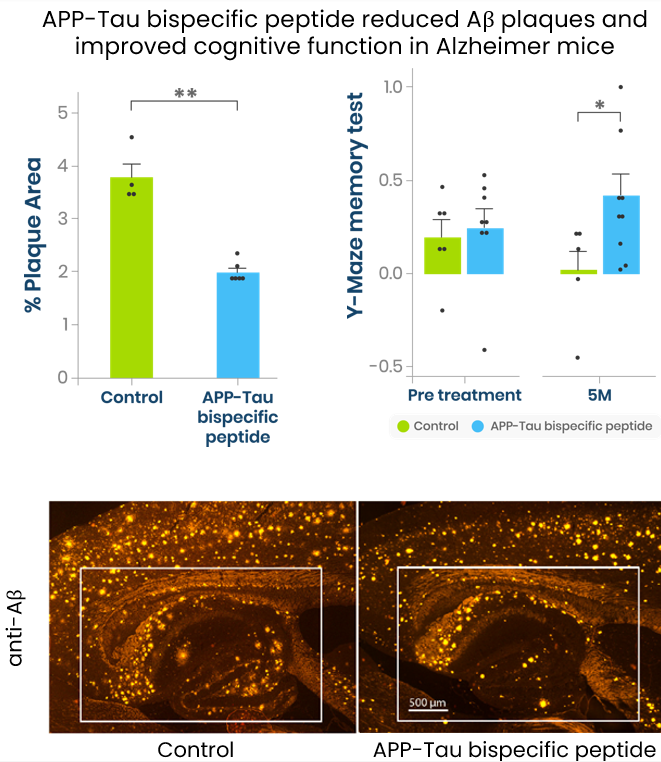6160
Overview
The interaction between APP and Tau, two central drivers of Alzheimer’s pathology, is increasingly recognized as a critical factor in disease progression. We developed a bispecific peptide therapy that disrupts the APP–Tau interaction, leading to reduced amyloid plaque burden and improved cognitive function in 5xFAD Alzheimer’s mice.
Applications
- Disease-modifying treatment for Alzheimer's disease
- Preventive therapy for individuals at risk of developing AD
- Potential use in other neurodegenerative diseases involving protein aggregation
Differentiation
- Targets APP–Tau interaction, a key driver of Alzheimer’s
- Restores cognitive function, even after disease onset
- Potential for non-invasive nasal administration
Development Stage
- Binding inhibition validated in vitro
- In vivo validation in 5xFAD Alzheimer mice showing reduced hippocampal plaque load and improved cognitive function

Reference
Patent Status:
USA Published: Publication Number: 2022-0306710-A1
Contact for more information


